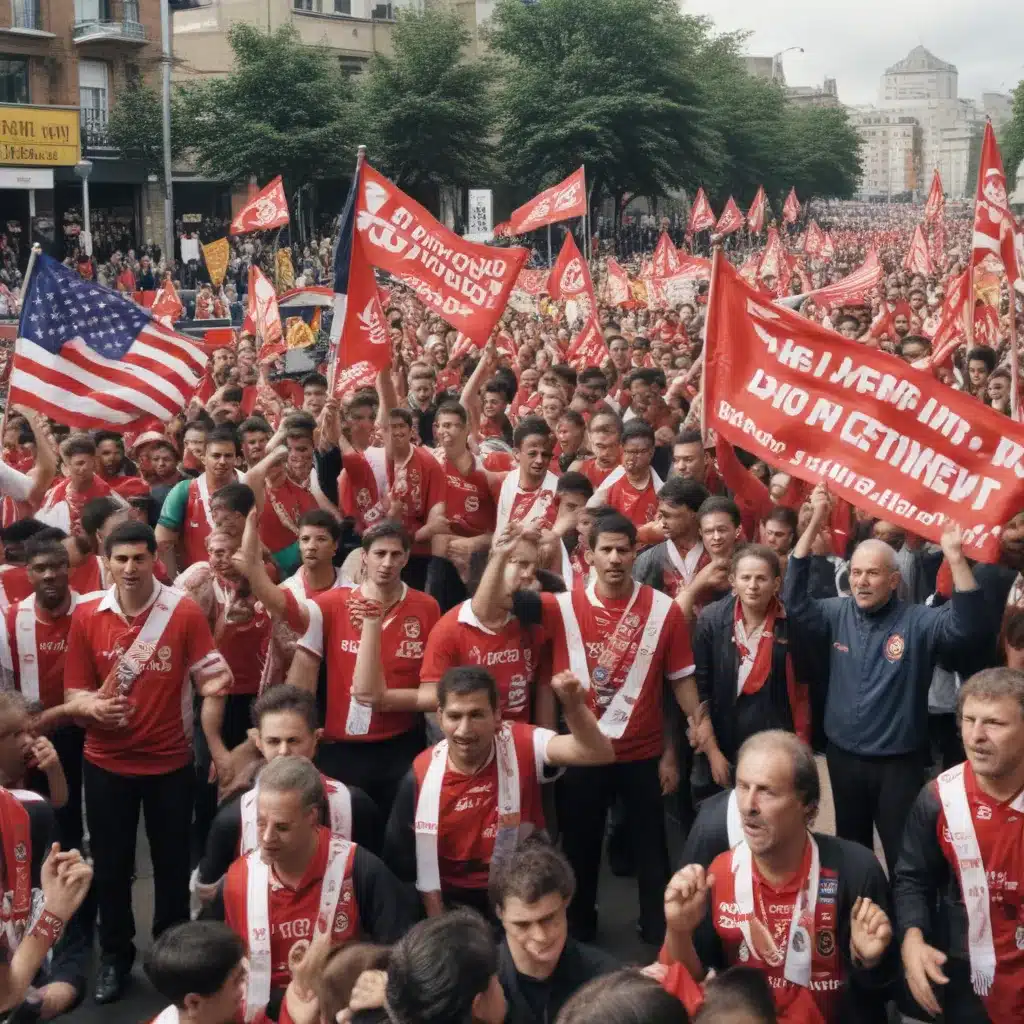
Neoliberal Policies and their Impact
In the UK, the rise of neoliberal policies since the Thatcher era has had a profound impact on the social, economic, and political landscape. The mantra of privatization, deregulation, and the shrinking of the welfare state has reshaped the country in fundamental ways.
Economic Restructuring
The restructuring of the British economy along neoliberal lines has meant the systematic dismantling of the country’s industrial base. Whole sectors, from manufacturing to mining, have been allowed to wither away, with devastating consequences for working-class communities. The emphasis has shifted towards a financialized, service-oriented economy, dominated by the City of London and the interests of the wealthy elite.
Privatization and Deregulation
The privatization of state-owned enterprises, from telecommunications to railways, has been a hallmark of the neoliberal project in the UK. This has often enriched a small class of shareholders and executives, while providing poorer service and higher costs for the general public. Deregulation in key industries has further tilted the playing field in favor of big business, undermining worker protections and consumer safeguards.
Welfare State Reforms
The neoliberal assault on the welfare state has been relentless. Austerity measures have cut deep into public services, from the National Health Service to local government funding. The social safety net has been eroded, with a rise in poverty, homelessness, and deprivation, especially among the most vulnerable segments of society.
The Socialist Movement in Britain
In the face of these neoliberal transformations, the socialist movement in Britain has sought to mount a determined fightback. From grassroots activism to the emergence of new political forces, the left has attempted to offer an alternative vision for the country.
Challenges and Responses
The dominance of neoliberal ideology within the political establishment, the media, and the wider culture has posed a significant challenge for the socialist movement. However, the growing inequality, precarity, and social unrest generated by neoliberal policies have also created fertile ground for left-wing alternatives to gain traction.
Grassroots Activism
Across the UK, socialist and left-wing activists have been organizing at the community level, building solidarity networks, and mobilizing against austerity measures and corporate power. From the anti-cuts campaigns to the Occupy movement, these grassroots efforts have sought to galvanize public support and put pressure on the government.
Policy Proposals
On the political front, the socialist movement has coalesced around the development of alternative policy proposals that challenge the neoliberal consensus. The rise of figures like Jeremy Corbyn within the Labour Party, with his commitment to renationalization, workers’ rights, and a more equitable distribution of wealth, has been a significant development.
Connections to Brazilian Football
The parallels between the neoliberal transformation of the UK and the changes within the Brazilian football system are striking. Both have seen the increased commercialization, privatization, and globalization of their respective sectors, with profound implications for the experiences of fans, workers, and local communities.
The Brazilian Football System
The Brazilian football landscape has undergone a process of neoliberal reforms, with the increasing involvement of private investors, the commercialization of club operations, and the growing influence of global media and sponsorship deals. This has led to concerns about the preservation of the sport’s traditional fan culture, the well-being of club employees, and the accessibility of the game for the working class.
Neoliberal Reforms in Brazilian Football
Similar to the UK, the Brazilian football system has witnessed the privatization of clubs, the rise of multi-club ownership structures, and the financialization of the sport. These changes have often prioritized the interests of corporate stakeholders over the needs of local communities and the broader fan base.
Resistance and Alternatives
Just as the socialist movement in Britain has sought to offer alternatives to neoliberal policies, the Brazilian football landscape has also seen the emergence of grassroots fan movements and calls for a more egalitarian, community-oriented approach to the game. These efforts aim to preserve the sport’s cultural heritage and ensure that the benefits of the industry are more equitably distributed.
Historical and Contextual Factors
To fully understand the dynamics at play, it is crucial to situate the neoliberal transformations and the socialist response within their broader historical and contextual frameworks.
British Colonialism and Global Influence
The UK’s legacy as a former colonial power and its continued global influence have shaped the country’s political and economic trajectories. The neoliberal project has been intertwined with the maintenance of Britain’s position on the world stage, often at the expense of domestic social welfare and working-class interests.
Ideological Shifts and Political Landscapes
The rise of Thatcherism and the subsequent embrace of the “Third Way” by New Labour have been pivotal in the entrenchment of neoliberal ideology within the UK’s political mainstream. The resulting polarization has created both challenges and opportunities for the socialist movement, as it seeks to chart an alternative path.
International Comparisons and Parallels
While the specific manifestations of neoliberalism and socialist responses may vary across different countries, the broader trends and dynamics observed in the UK have resonance in other parts of the world, including in the realm of Brazilian football. Drawing these international comparisons can shed light on the global nature of these socioeconomic transformations and the potential for cross-border solidarity and shared learning.
As the UK continues to grapple with the legacies of neoliberalism and the ongoing efforts of the socialist movement, the connections to the evolving landscape of Brazilian football offer valuable insights and opportunities for further exploration. The struggles and strategies employed on both sides of the Atlantic can inform each other, as the pursuit of a more equitable, community-driven, and egalitarian future remains a shared imperative.

